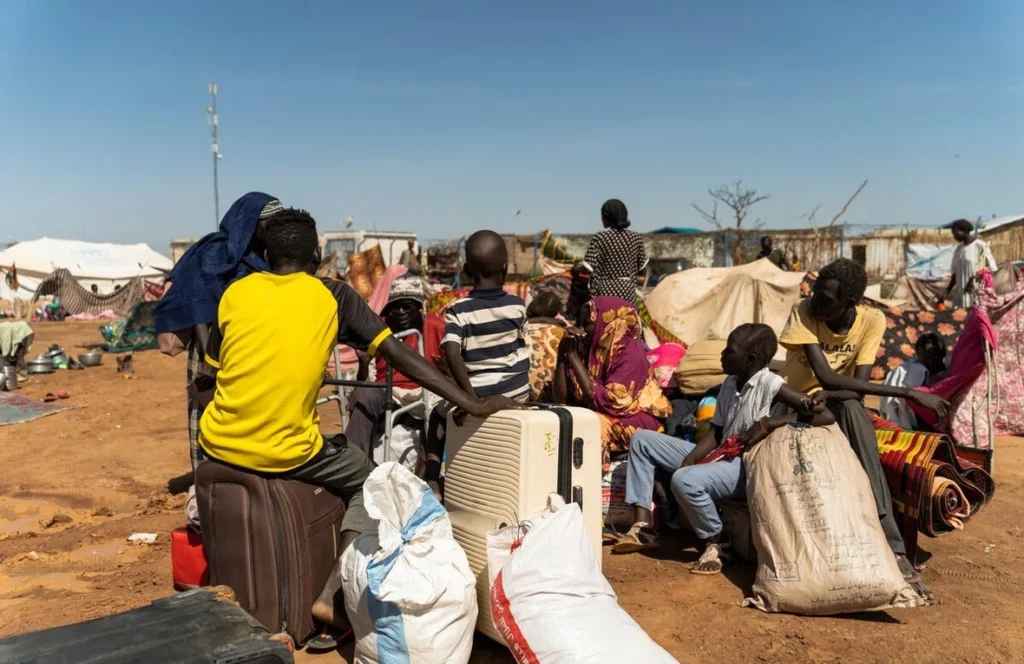
Daily Maverick
By Dismas Nkunda
April 15 marked the first anniversary of the conflict in Sudan. The situation is dire: since the outbreak of the crisis nearly nine million civilians have been forcibly displaced, with 80% internally displaced and others having fled to neighbouring Chad, Central African Republic, Egypt and South Sudan, and within the region to Kenya and Uganda.
United Nations experts have consistently raised the alarm over mass atrocities committed and even raised the spectre of genocide. The International Criminal Court (ICC), which investigates genocide, war crimes and crimes against humanity, opened a case in the western region of Darfur nearly 20 years ago, and announced that it was investigating recent violations.
The situation is catastrophic, and the conflict has been characterised by killings of civilians, burning and looting of villages through ground attacks – particularly in Darfur – aerial bombardment in major urban centres, pervasive sexual violence, and arbitrary arrest, detention and torture. Civilian infrastructure has been destroyed, and 80% of hospitals have been forced to close.
Half of the population is in need of food aid. Nearly five million are severely malnourished, with 72% of them under the age of five. The UN has appealed to the international community to pledge $4.1-billion to meet humanitarian needs, and a humanitarian conference is taking place in Paris and was organised to ensure Sudan does not become a “forgotten crisis”.
However, the response to date has been woefully insufficient. Only 6% of this year’s humanitarian appeal has been funded and previous humanitarian pledges have not been honoured.
In much of the country, international humanitarian agencies are unable to function. Locally organised emergency response rooms are stepping up heroically to fill the gap, but the international community has been too slow to support them – or indeed even to recognise them as humanitarians.
More action is needed by the international community and regional players to pressure the conflict’s belligerents – the Sudanese Armed Forces and the Rapid Support Forces – to stop the violence. Numerous efforts to secure a ceasefire brokered by the US and Saudi Arabia in Jeddah and other efforts by the Intergovernmental Authority on Development in Eastern Africa have failed.
The policy of brinkmanship by both parties must be halted through pressure by major continental players like South Africa to come to the negotiating table and stop the guns and establish an environment for future political negotiations.
These talks must be inclusive, engaging civilians as key stakeholders in securing the future of a peaceful Sudan where the dignity and human rights of all are respected and promoted.
South Africa has a unique role to play. While it disappointingly hosted Mohamed Hamdan “Hemedti” Dagalo of the Rapid Support Forces in January 2024, the country can still show its commitment to peace and justice for Sudanese through drawing on its rich history of conflict resolution and mediation.
South Africa has a precedent of acting in the interests of international justice, through its recent global leadership in referring the crisis in Gaza to the International Court of Justice.
Though he was able to flee the country, a South African court issued a ruling prohibiting former Sudanese president Omar al-Bashir from leaving the country until a decision could be made on whether he should be arrested in relation to ICC charges of genocide when he attended the African Union Summit in Johannesburg in 2015.
South Africa should leverage its role as a leader on the African continent to encourage African Union member states to design a practical roadmap that can be effective in responding to the crisis and builds upon efforts by the African Union’s Peace and Security Council.
Victims of the crisis in Sudan need solidarity and support from their fellow African citizens to end the conflict and establish parameters for future political arrangements with civilian leadership.
South Africa has the power and experience necessary to broker peace, and South Africans should push their leaders to leverage these abilities to ensure the warring parties cease the fighting, and bring peace and justice to the citizens of Sudan.
Read the original article on Daily Maverick.